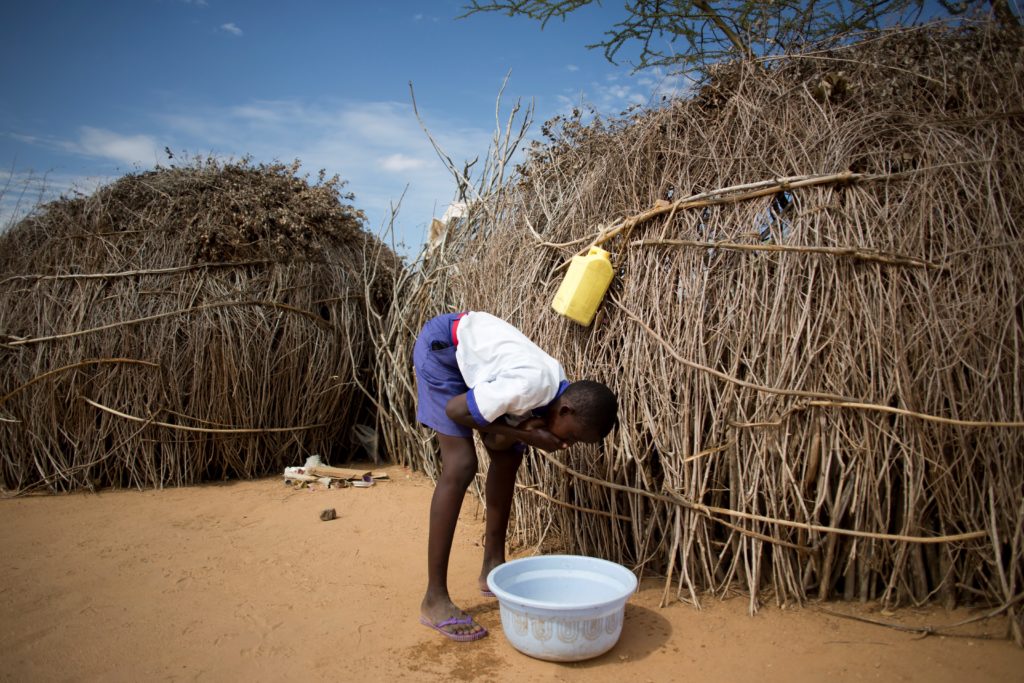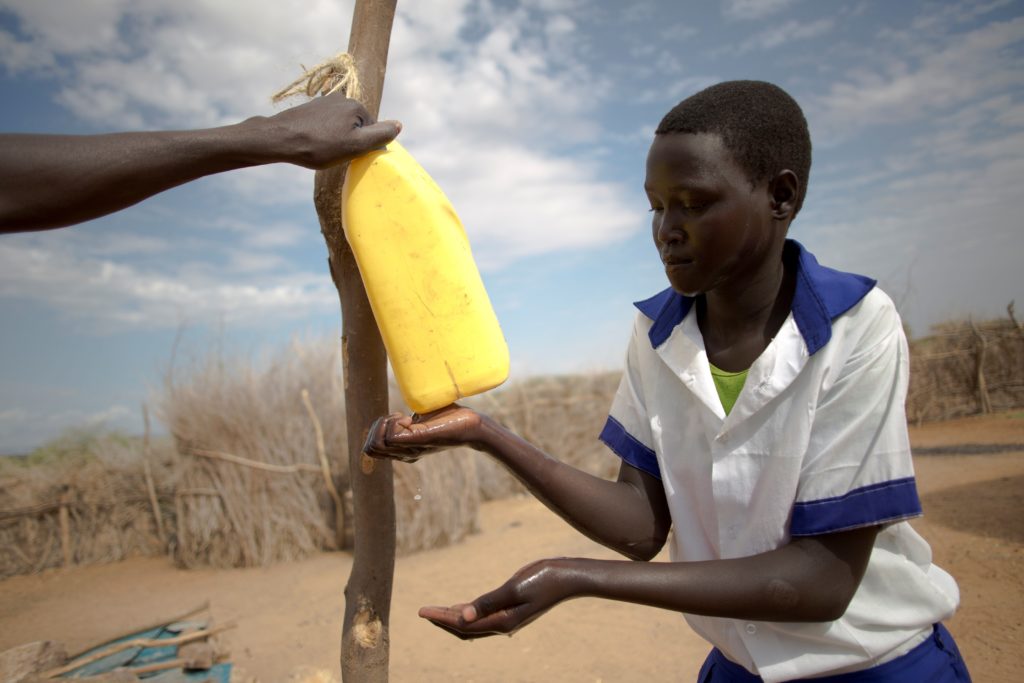October 13, 2017
By Leah Wohlgemuth, the International Coalition for Trachoma Control
It is well known and indisputable that handwashing is a crucial element to the prevention of many infectious diseases. But did you know that similar messages used to educate communities about clean hands can be applied to educate communities about clean faces to prevent trachoma, the world’s leading cause of infectious blindness?

Thirteen year old Leonard Kalokol demonstrate to family members how to wash your hands and face at their home in Lomil in Turkana, Northen Kenya, 1 Oct 2014. © Karel Prinsloo/Sightsavers
In 2016, I began working in a team dedicated to delivering hygiene behaviour change programmes to help combat trachoma in Uganda. While considerable progress has been made to eliminate trachoma through surgeries and drug distributions, poor hygiene and sanitation practices can increase the transmission of the disease and threaten the sustainability of gains made.
To ensure the long-term success of trachoma elimination efforts, a trachoma initiative funded by the Queen Elizabeth Diamond Jubilee Trust and implemented by the International Coalition for Trachoma Control, is working with established water, sanitation, and hygiene (WASH) partners to integrate hygiene and facial cleanliness messages into existing programs to educate communities about the connection between hygiene, trachoma, and good health.
Working with the WASH sector has been critical to fully implement the SAFE Strategy, a comprehensive WHO-endorsed trachoma elimination strategy which calls for surgery to treat trichiasis (S), mass distribution of antibiotics to endemic communities (A), facial cleanliness (F), and environmental improvements (E).
A key facet to ensure the successful implementation of the SAFE Strategy in Uganda has been to work with WASH partners who have established relationships in the communities where we work. We work with our valued partners by building upon their programmes, adding additional information about trachoma and hygiene practices, such as hand and face washing, which are critical to the elimination of this blinding disease.
Integrating trachoma messaging into existing WASH strategies and materials means that resources are used efficiently and time is not spent creating new materials that run in parallel to the other health and hygiene work going on. This includes incorporating hygiene and trachoma messaging into existing WASH lessons, with women’s groups, at community meetings, and community-led total sanitation (CLTS) efforts.
We have found success in working alongside known organizations who have already built trust, relationships and a presence in the communities. Our programmes have also benefitted from the infrastructure that these WASH organizations are putting in place, such as access to clean water, latrines, and hand and face washing stations, which help to encourage healthy behaviours connected to trachoma elimination.

Fourteen year old Dorcas Akuuta demonstrate to her father preacher Abraham Akuuta how to wash your face and hands at their home in Lomil in Turkana, Northen Kenya 1 Oct 2014. © Karel Prinsloo/Sightsavers
In addition to the critical work being done at the community level, we have also been working with the WASH sector at the national level. In Uganda, we have been working with the relevant ministries on the National Sanitation and School Sanitation guidelines to emphasize the link between WASH and neglected tropical diseases (NTD).
In part, this approach works because good hygiene practices don’t just reduce the risk of trachoma, but also reduces the risk of other NTDs, such as schistosomiasis and soil transmitted-helminths, which are often co-endemic.
From policy to implementation, the need for cross-sector collaboration is a key lesson that has been learned from our work in Uganda. Collaborative approaches can increase the efficiency of resources and make programs more effective. This Global Handwashing Day, we thank our WASH partners for their enormous contributions to the elimination of trachoma and other neglected tropical diseases. We look forward to continuing and strengthening these important partnerships into the future.
Subscribe to our mailing list to receive regular updates from the Global Handwashing Partnership or follow us on social media.
© 2017 The Global Handwashing Partnership (GHP).